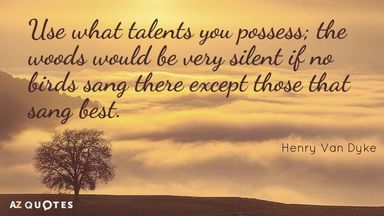|
Academic Websites
www.cookie.com Kids learn to read with phonics, build skills in math, language, social studies, science and much more. www.getepic.com Instantly access 25,000 of the best books, learning videos, quizzes & more. kids.nationalgeographic.com We teach kids about the world and how it works, empowering them to succeed and to make it a better place. www.khanacademy.org Khan Academy offers practice exercises, instructional videos, and a personalized learning dashboard that empower learners to study at their own pace in and outside of the classroom. We tackle math, science, computer programming, history, art history, economics, and more. nlvm.usu.edu/en/nav/vlibrary.html National Library of Virtual Manipulatives provides downloadable manipulatives for mathematical concepts. www.coolmathgames.com This is our brain-training site, for everyone, where logic & thinking meet fun & games. These games have no violence, no empty action, just a lot of challenges that will make you forget you're getting a mental workout! www.sumdog.com Sumdog provides engaging learning and practice in numeracy for children aged 5-14, and literacy for children aged 5-11. xtramath.org/#/home/index Help kids master basic math skills. www.freerice.com Various subjects personalized for you and for each item answered correctly, freerice will donate 10 grains of rice to the United Nations World Food Programme. www.wordhippo.com Powerful word tools for your creative needs. https://www.fun.com/fun-brain-games-for-kids.html A great site with links to a wide variety of learning games. www.partsgeek.com/mmparts/traveling_around_the_world_virtual_tours_and_field_trips.html Enjoy a field trip to amazing museums and landmarks around the world! |
Academic Apps
Merriam-Webster- Dictionary and Thesaurus Word of the day- Vocabulary Builder Epic!- A reading library with 25,000 books available in all genres, English and Spanish. Khan Academy- You can learn anything. Khan Academy Kids- You can learn anything for younger kids. Ted- Access to 3,000 videos. Expand your world. Quizlet Flashcards- Create your own flashcards and Study Socratic -Math and Homework Help SnapType- Easily complete school worksheets on an ipad or iphone. ModMath- iPad app that helps kids with dyslexia and dysgraphia (and others) do math. |
Self-Advocacy: 5 Tips from a Student
Written by Dessie Weigel, Public Policy & Advocacy Intern
Written by Dessie Weigel, Public Policy & Advocacy Intern
Approaching a teacher and telling him or her that you have a hard time reading or spelling can be terrifying. Asking the teacher to give you things that other students don’t get, such as extra time, is daunting. If I could go back and change one thing about my educational experience it would be my ability to tackle these tough situations by having the confidence to ask for what I need and advocate for myself.
My name is Dessie and I’m the Public Policy & Advocacy Intern at NCLD. I’m a rising Junior Politics major at Whitman College and I have dyslexia. I’ve been teaching self-advocacy to elementary aged students with disabilities for the last two years. I’m passionate about self-advocacy because it is a skill that can have a direct and transformative impact on a student’s success. Here are my 5 tips on how to own your disability and be a self-advocate:
1. Know How you Think
Metacognition, or understanding how you think, is the first step to getting the support that you need. The way dyslexia affects me is not necessarily the way it affects all dyslexics. A learning strategy or accommodation that works for me may not work for everyone. Thinking about your thinking allows you to figure out specific tools and strategies that can help you and complement your learning style. Walking into a self-advocacy situation knowing exactly how you can be best helped by your teacher, classroom, or school will make you a much more effective self-advocate
2. Learn the Law
When I was in 9th grade, even though I had a diagnosed learning disability, my school took me off of my Individualized Education Plan (IEP) because I was doing well in all of my classes. Under the Individuals with Disabilities Education Act (IDEA), students with a diagnosed disability are eligible for an IEP even if they have never failed a class. I was not involved in my IEP meetings and my parents did not know that what the school did was not allowed. If I had done my research, gotten involved, and insisted on being a part of my own educational decisions, I could have stood up for my learning needs. In order to effectively advocate for yourself, you need to learn the federal and state laws pertaining to disabilities as it relates to you.
3. It’s Okay to Care
My learning disability has always been an emotional trigger for me. It was not until college that I was able to talk about my dyslexia without crying. This held me back from advocating for myself because I was afraid to look weak or cry in public. Not everyone tears up the moment dyslexia is mentioned, but many people have a lot of emotions woven into the chapters of their LD story. Don’t let the fear of showing emotion impede your advocacy. It shows that you care and can help to demonstrate to others how much this issue means to you.
4. Find a Community
There is power in both the personal story and the collective story. For a long time I did not know that there were other stories out there like mine until I found a community of students with learning disabilities who could understand and corroborate my LD story. I became much more confident in my self-advocacy once I joined a community of advocates. Although my personal story is still essential in advocating for my specific needs, I feel more comfortable asking for accommodations knowing that other students need them too.
5. Be Confident
You have the right ask for the help and resources that you need. It may feel awkward, uncomfortable, and scary, but your teachers, administrators, and policymakers want to see you succeed. Needing help is not something to be embarrassed about and asking for that help is not overstepping your bounds.
My name is Dessie and I’m the Public Policy & Advocacy Intern at NCLD. I’m a rising Junior Politics major at Whitman College and I have dyslexia. I’ve been teaching self-advocacy to elementary aged students with disabilities for the last two years. I’m passionate about self-advocacy because it is a skill that can have a direct and transformative impact on a student’s success. Here are my 5 tips on how to own your disability and be a self-advocate:
1. Know How you Think
Metacognition, or understanding how you think, is the first step to getting the support that you need. The way dyslexia affects me is not necessarily the way it affects all dyslexics. A learning strategy or accommodation that works for me may not work for everyone. Thinking about your thinking allows you to figure out specific tools and strategies that can help you and complement your learning style. Walking into a self-advocacy situation knowing exactly how you can be best helped by your teacher, classroom, or school will make you a much more effective self-advocate
2. Learn the Law
When I was in 9th grade, even though I had a diagnosed learning disability, my school took me off of my Individualized Education Plan (IEP) because I was doing well in all of my classes. Under the Individuals with Disabilities Education Act (IDEA), students with a diagnosed disability are eligible for an IEP even if they have never failed a class. I was not involved in my IEP meetings and my parents did not know that what the school did was not allowed. If I had done my research, gotten involved, and insisted on being a part of my own educational decisions, I could have stood up for my learning needs. In order to effectively advocate for yourself, you need to learn the federal and state laws pertaining to disabilities as it relates to you.
3. It’s Okay to Care
My learning disability has always been an emotional trigger for me. It was not until college that I was able to talk about my dyslexia without crying. This held me back from advocating for myself because I was afraid to look weak or cry in public. Not everyone tears up the moment dyslexia is mentioned, but many people have a lot of emotions woven into the chapters of their LD story. Don’t let the fear of showing emotion impede your advocacy. It shows that you care and can help to demonstrate to others how much this issue means to you.
4. Find a Community
There is power in both the personal story and the collective story. For a long time I did not know that there were other stories out there like mine until I found a community of students with learning disabilities who could understand and corroborate my LD story. I became much more confident in my self-advocacy once I joined a community of advocates. Although my personal story is still essential in advocating for my specific needs, I feel more comfortable asking for accommodations knowing that other students need them too.
5. Be Confident
You have the right ask for the help and resources that you need. It may feel awkward, uncomfortable, and scary, but your teachers, administrators, and policymakers want to see you succeed. Needing help is not something to be embarrassed about and asking for that help is not overstepping your bounds.
"Education is the most powerful weapon which you can use to change the world."~ Nelson Mandela




